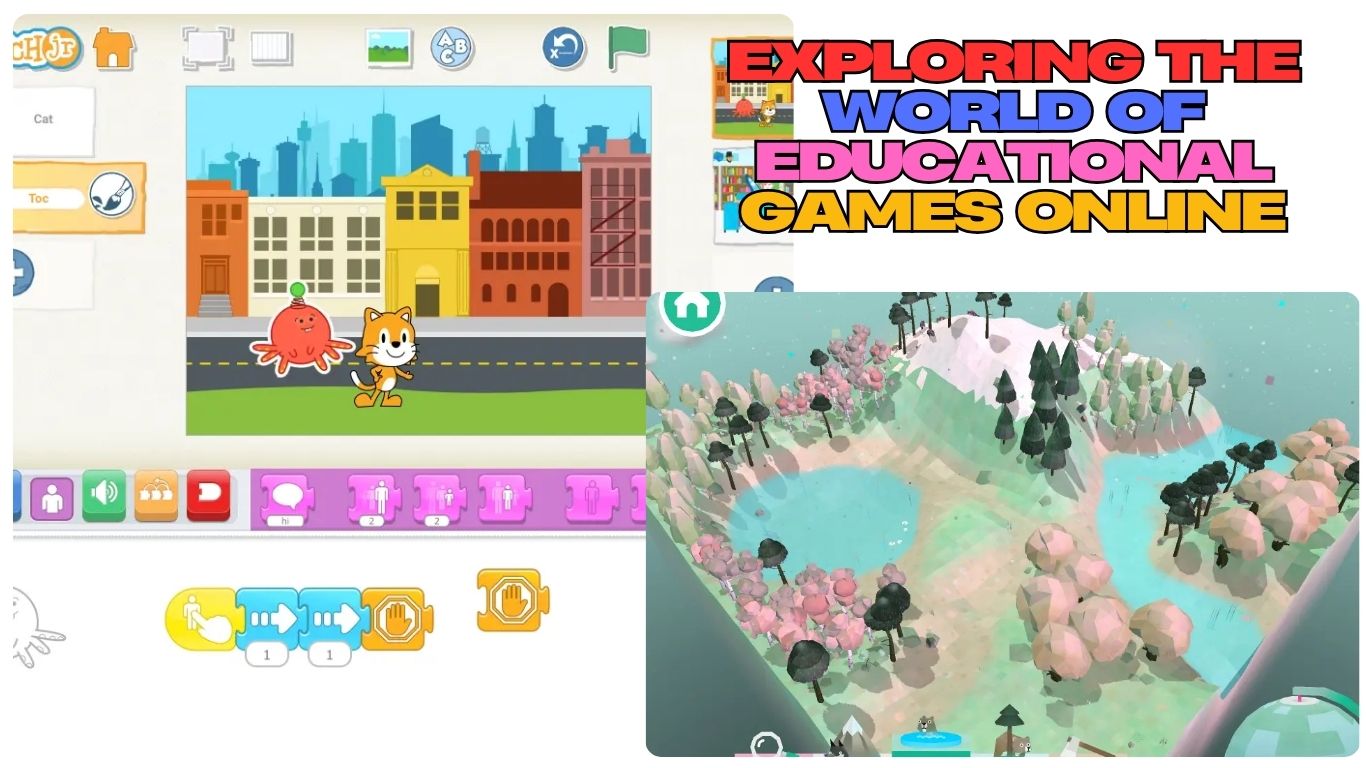Learning doesn’t have to be boring! In fact, the internet is filled with engaging and interactive ways to boost your knowledge and skills through educational games online. These aren’t just simple time-wasters; they are carefully designed tools that can make learning subjects like math, science, history, and even new languages feel like an exciting adventure. Whether you’re a student looking for a fun way to study, a parent wanting to supplement your child’s education, or an adult eager to learn something new, the world of online educational games has something valuable to offer. Let’s dive into this dynamic realm of digital learning.
What Makes a Game “Educational”?
Before we explore the vast landscape of online options, it’s important to understand what truly makes a game “educational.” It’s more than just slapping some facts onto a typical game format. A well-designed educational game seamlessly integrates learning objectives into the gameplay itself. The challenges, rewards, and interactions within the game are all structured to help players grasp new concepts, practice skills, and retain information.
Intense Detail: Think about a math game where you need to solve equations to build a bridge for your character, or a language learning game where you match words to pictures to advance the story. In these examples, the learning is not separate from the fun; it’s an integral part of it. Effective educational games often provide immediate feedback, allowing players to understand their mistakes and learn from them in real-time. They 1 also tend to break down complex topics into smaller, more manageable chunks, making it easier for learners to digest and master the material. The use of engaging narratives, relatable characters, and visually appealing graphics can further enhance the learning experience and keep players motivated.
The Many Benefits of Learning Through Online Games
Why choose online educational games over traditional study methods? The answer lies in the numerous advantages they offer for learners of all ages.
Intense Detail: One of the biggest benefits is increased engagement. The interactive nature of games can capture and hold attention much more effectively than passively reading a textbook or listening to a lecture. Online educational games can also foster active learning, requiring players to actively participate and make decisions rather than simply absorbing information. They can improve problem-solving skills as players figure out strategies to overcome challenges within the game. Many games also encourage critical thinking by presenting scenarios that require analysis and decision-making. Furthermore, the element of fun can reduce learning anxiety and make the process more enjoyable, leading to better retention of information. Online games can also offer personalized learning experiences, adapting to the player’s skill level and providing challenges that are just right for them. Finally, many online educational games offer opportunities for collaboration and friendly competition, which can enhance social learning.
Exploring the Diverse Landscape of Online Educational Games
The variety of educational games available online is truly astounding. No matter your age or what you want to learn, you’re likely to find a game that suits your needs.
Intense Detail: For younger learners, there are countless early learning games that focus on foundational skills like letter and number recognition, basic math operations, and early reading. Websites like ABCya! and PBS Kids Games offer a plethora of free options in this category. As kids get older, they can explore math games that cover everything from arithmetic to algebra and geometry on platforms like Khan Academy and Cool Math Games. Science games can range from virtual dissections to space exploration simulations, often found on educational websites and through interactive apps. Language learning games like Duolingo and Memrise make acquiring a new language fun and accessible. Even subjects like history, geography, and coding have engaging online games designed to make learning interactive. For adults, there are brain training games that focus on improving memory, attention, and cognitive skills, often found on platforms like Lumosity and CogniFit. The formats of these games vary widely, including puzzle games, strategy games, simulation games, adventure games, and quiz-style games.
Key Features of Effective Online Educational Games
While the sheer number of online educational games can be overwhelming, there are certain key features that distinguish the truly effective ones from the rest.
Intense Detail: A well-designed online educational game should have clear learning objectives that are aligned with educational standards or specific learning goals. The gameplay should be engaging and enjoyable, keeping learners motivated and wanting to continue playing. The game should provide constructive feedback that helps players understand their progress and identify areas for improvement. It should offer an appropriate level of challenge, being neither too easy nor too frustrating. Effective games often incorporate adaptive difficulty, adjusting the level of challenge based on the player’s performance. They should also have a user-friendly interface that is easy to navigate and understand, regardless of the player’s age or tech-savviness. Finally, many effective online educational games utilize visual aids, audio cues, and interactive elements to enhance the learning experience and cater to different learning styles.
Finding the Right Online Educational Games for You
With so many options available, how do you choose the best online educational games for yourself or your child?
Intense Detail: First, identify your learning goals. What specific subject or skill do you want to focus on? Then, consider the age and learning level of the intended player. Make sure the game is appropriate for their current knowledge and abilities. Read reviews and recommendations from other users, educators, or reputable websites. Many educational game platforms offer free trials or demos, which can be a great way to test out a game before committing to it. Look for games that align with educational standards if you’re using them for schoolwork. Pay attention to the design and interface – is it engaging and easy to use? Finally, don’t be afraid to experiment with different types of games to find what works best for you or your child’s learning style.
Potential Considerations and Limitations
While online educational games offer many benefits, it’s also important to be aware of potential drawbacks.
Intense Detail: One common concern is screen time. It’s crucial to ensure that time spent playing educational games is balanced with other activities like physical exercise, social interaction, and offline learning. Another potential limitation is the quality of some games. Not all games that claim to be educational are equally effective, so it’s important to choose reputable and well-designed options. Additionally, some online educational games may require a stable internet connection and compatible devices, which might not be accessible to everyone. It’s also worth noting that while games can be a great supplement to learning, they shouldn’t entirely replace traditional teaching methods or social interaction with educators and peers.
